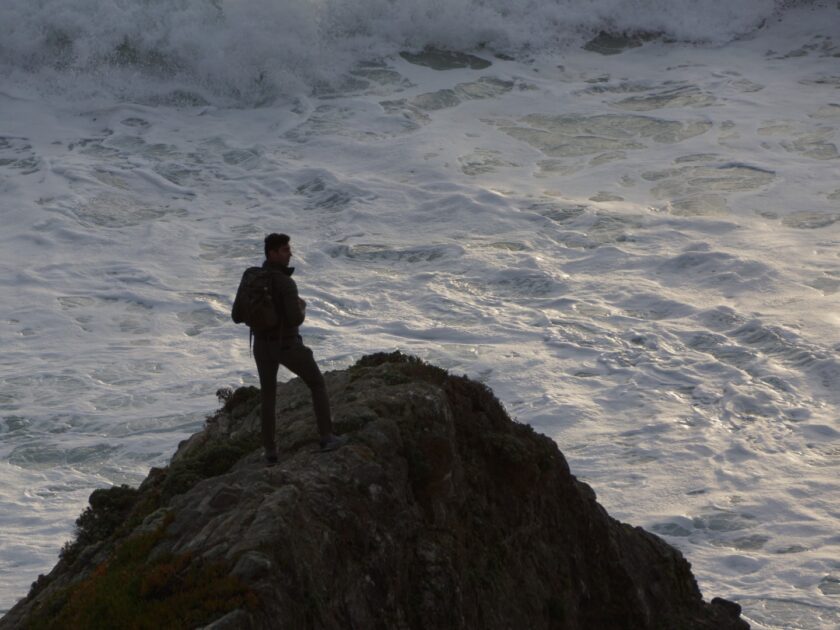A large weeping willow tree in a drainage easement needed to be cut down not long after we moved into our current house. Located on the property line, I found the aerial view with the property line overlay on the County website to figure out who was responsible. The HOA and City said it wasn’t theirs. Another neighbor split the cost with us but required another neighbor’s driveway for access and the equipment. Yet another neighbor and I watched the crew assess the tree determining that it was unsafe to climb. Forgoing the equipment, the crew threw ropes up securing them around the branches and then made strategic cuts into the trunk. With only a few calculated pulls, the tree came down in spectacular fashion.
Since we rely on friends, family and the Internet as our investing and retirement resources, we need to develop a strong discernment on what we deem are reliable and trustworthy sources. There’s no point in investing our time let alone our money into resources that are worthless.
A culture has evolved on YouTube and other social media sites of Instagram/Facebook reels, TikTok, X and more recently LinkedIn. At first it was in the broadest sense of the term “influencer,” then financial influencers or “finfluencers” who educate their followers on money, investing and other personal finance topics. As more of these finfluencers entered the space, the more competitive it became.
Enter the “wow-factor,” the only way to stay ahead of your competition, at whatever the cost. This, however, isn’t limited to the influencer business. This trend is seen throughout all business. The difference being reputation. There is a fine line between optimizing your “wow-factor” and keeping your integrity. The Rise of the Finfluencers — Can You Trust Their Advice? | Kiplinger
This “Bro culture,” that has emerged initially toed the line but now has extensively crossed that line. These “hustle bros” spew numbers, data and assets to impress their followers that is at best misleading and at worst entirely fabricated. They deal out unbelievable financial advice while having never legitimately done it themselves. They claim to be experts on the economy, the stock market, investing, passive income, crypto, NFTs. The vast majority of the passive income strategies they promote aren’t even well-founded investing principles, but instead involve multi-level marketing schemes to recruit others, buying one of their overpriced courses that will teach you essentially nothing or signing up for their stock picks locked behind their paywall.
What began as the work-from-anywhere job, has morphed into an instant-$100k-income gig and how to turn $100 into $1M by getting stock tips from ChatGPT. These influencers, however, never post about the hard days when they make no money, see no people other than themselves and still need to pay taxes, insurance, medical and other living expenses. They never admit how deeply in debt they are or that Mom & Dad are footing the bills or what their life is truly like. Even if they genuinely did make a large sum of money, the methods they are pitching you almost certainly won’t make you wealthy. So much is misguided and deceptive. Sebastian Ghiorghiu and the rise of the YouTube millionaire influencer | Vox
The curtain is beginning to fall on this incentivized bro culture. More women and men are publicly calling them out, making strategic cuts into their outrageous claims and promises as the SEC continues to investigate.
Why I Stopped Listening To Finance “Influencers” (youtube.com)
Is This A Golden Age of Fraud? (youtube.com)
The quality of our research and what we chose to consume will determine the quality of our investments and future life. If we seek out unrealistic, short-sighted resources, this will directly reflect what we ultimately experience.
Educating yourself on investing doesn’t have to be complicated, but it does have to be credible and sustainable which is sometimes boring. Most people have actual jobs to do, businesses to run, families to care for and responsibilities to take care of. In a world that tries to compensate for time manipulating us into quick fixes and productivity hacks, there are two things to remember 1) anything enduring takes time to build and 2) everything comes with a cost.
By relying on the endless need to wow or distract us, we miss out on what will truly better us. I read articles and books with the occasional YouTube or podcast. My husband watches far more YouTube/podcasts. As we vet what is good and worthwhile, we share it with each other, and I will continue sharing here.
These hustle gurus, grifters, charlatans, fraudsters whatever we want to call them are at the precipice of where integrity begins (below). Their sustainability and longevity will be determined by their ability to rebuild their credibility with reliable content (and some are reeling themselves back in over that crossed line) or in the end, ultimately fall in spectacular fashion.
Integrity is not:
Creating an “on-camera” self that doesn’t align with your real self
Believing your behavior doesn’t harm anyone
Doing what’s popular instead of what’s right
Allowing fear to dictate your decisions
Saying one thing and doing another
Taking credit for others’ work
Valuing success over ethics
Hiding your mistakes
Following the crowd
Turning a blind eye
Making excuses
Blaming others
Staying Silent
Hypocrisy
Integrity is:
Honesty
Credibility
Transparency
Intellectual honesty
Doing what you say
Acting with courage
Honorable character
Treating others fairly
Owning your mistakes
Respecting confidentiality
Showing respect for others
Admitting when you’re wrong
Standing up for what you believe
Refusing to compromise your values
Doing what’s right, even when it’s hard
In a world that values success at any cost, integrity is the ultimate success. – Justin Wright Post | LinkedIn – I revised slightly.
Featured Image – Bodega Head, CA – Photographer – Cary Wauters

